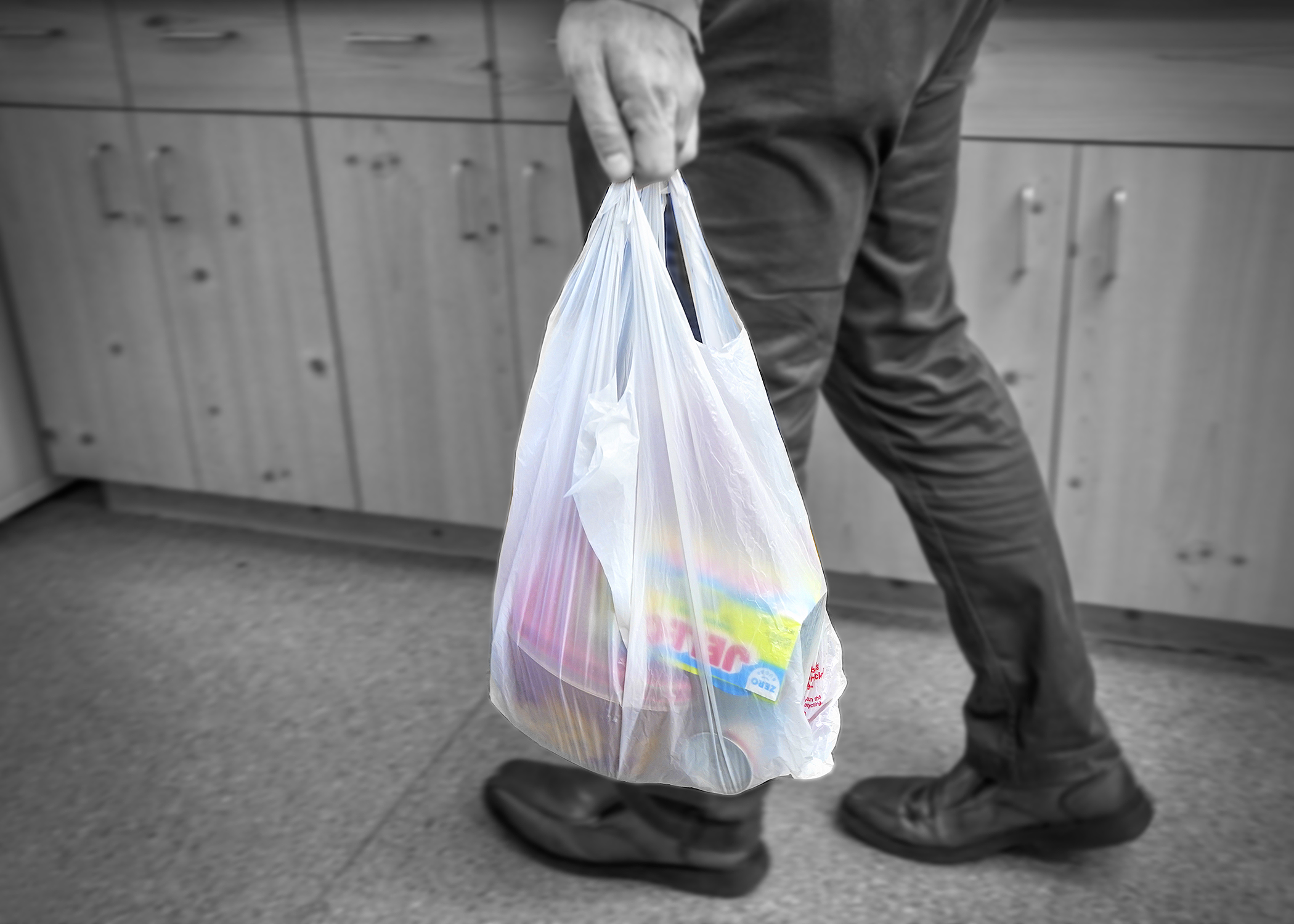Paper or plastic? House bill proposes to bin ban on local bag laws

Maybe an hour after many committee members had likely enjoyed breakfast or an early-morning cup of caffeine, Rep. Sydney Jordan (DFL-Mpls) may have made some stomachs a bit queasy.
She told the House State and Local Government Finance and Policy Committee Tuesday that the average American consumes a credit card’s worth of plastic each week via the air we breathe, water we drink and foods we eat.
Jordan cited the statistic in support of HF3345 that she sponsors to repeal a statute passed in 2017 that, in part, prohibits a political subdivision from imposing a bag ban on merchants.
It was held over by the committee for possible inclusion in a larger bill.
This does not automatically create a plastic bag ban anywhere, Jordan emphasized, rather it is another tool in the toolbox for local units of government that bear the costs of dealing with waste.
“While this preemption is in place, a message is sent that Minnesota doesn’t care about sustainability and moving away from its dependence on single-use plastic. It shuts down the conversations around solutions to plastic waste before they start,” said Avonna Starck, state director of Clean Water Action.
Letters of support were submitted by Coalition for Plastic Reduction, Conservation Minnesota, Metro Cities, Minnesota Zero Waste Coalition, Northeast Metro Climate Action, Sierra Club and the Vadnais Heights Green Team.
Bruce Nustad, president of the Minnesota Retailers Association, expressed opposition to the bill, but with a “big asterisk.” His organization opposes the statute repeal but supports a statewide solution that would offer consumer consistency, be fair to retailers and one crafted by all stakeholders.
He and Jamie Pfuhl, president of the Minnesota Grocers Association, each expressed concern about a potential patchwork of local bans.
“Operating in an environment of varying local laws will cause customers confusion (and) has the potential to have inequitable effects on those that do not have the same mobility or access as others within our communities,” Pfuhl said. She added that local grocers now annually recycle millions of pounds of plastic.
“A lot of consumers value their opportunity to have that choice,” said Rep. Jim Nash (R-Waconia). “… This is not going to fix the problem. The problem is in people who are lazy and throw things out the window or don’t do their job properly.”
The American Forest & Paper Association submitted a letter against the bill.
“This bill isn’t one bill to solve all our waste problems,” Jordan reiterated, before saying that Boston and Philadelphia have plastic bag bans. “… I think people in Minnesota are smart and can deal with this, especially if people in other major metropolitan areas have bag bans.”
Related Articles
Search Session Daily
Advanced Search OptionsPriority Dailies
Speaker Emerita Melissa Hortman, husband killed in attack
By HPIS Staff House Speaker Emerita Melissa Hortman (DFL-Brooklyn Park) and her husband, Mark, were fatally shot in their home early Saturday morning.
Gov. Tim Walz announced the news dur...
House Speaker Emerita Melissa Hortman (DFL-Brooklyn Park) and her husband, Mark, were fatally shot in their home early Saturday morning.
Gov. Tim Walz announced the news dur...
Lawmakers deliver budget bills to governor's desk in one-day special session
By Mike Cook About that talk of needing all 21 hours left in a legislative day to complete a special session?
House members were more than up to the challenge Monday. Beginning at 10 a.m...
About that talk of needing all 21 hours left in a legislative day to complete a special session?
House members were more than up to the challenge Monday. Beginning at 10 a.m...